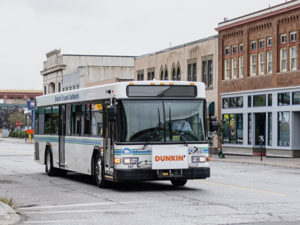Advocate for Urban Agriculture Policies
Food security, both as food safety and food justice, will be imperative for the world’s growing population to uphold a minimal standard of quality of life. From using soilless crops, to rooftop gardens, to peri-urban farms, and private home gardens, urban agriculture can be part of the solution to feeding 9 billion people by 2050. While there are challenges in building and maintaining soil biology, the benefits of bringing agriculture into urban environments far outweigh the challenges.
For example, rooftop gardens can exchange CO2, rainwater, and heat between the building itself and its connected rooftop garden. Local farming in urban areas increases access to fresh vegetables and fruit for populations who may otherwise struggle to access fresh, healthy foods. Urban farming also reduces greenhouse gases caused from food transportation, storage, and distribution, and trees and crops help eliminate the urban heat island effect caused by asphalt and concrete buildings.
In many ways, urban agriculture can also be a way to revitalize communities, improve food security particularly for low-income families, and support often healthier, culturally appropriate diets for communities who have suffered from the sale and marketing of highly-processed, nutrient-poor diets in their communities for so long. According to a policy guide on urban agriculture from PolicyLink, families who participate in community gardens are typically able to offset 30-40% of their produce needs by eating foods grown in their own gardens. Additionally, urban agriculture can serve as opportunities for basic job training and entrepreneurship in urban communities that may be lacking in job communities. Finally, urban farms can also serve as open spaces for community gathering and ultimately help foster a sense of community and pride. In fact, neighborhoods with community gardens typically have lower rates of crime and trash dumping, and higher rates of voter registration and other civic responsibility.
Between the environmental and societal benefits of urban agriculture, the city of Duluth should consider promoting urban agriculture within city limits. The city could do this by revising zoning ordinances and permitting processes to promote urban agriculture, using land easements and informal agreements to provide organizations and neighborhoods with vacant lots for urban agriculture, providing grants and low-interest loans and increasing funding for assistance programs that train urban farmers or provide technical assistance. The city of Duluth can look to examples, such as that of Seattle’s Department of Neighborhoods, which has created an inventory of land for urban farming that prioritizes urban agriculture within low-income communities and communities of color.
Did you take this action? Report it!
Help us show our collective community impact by reporting that you took this action.
Did you take this action? Report it!
Help us show our collective community impact by reporting that you took this action.







